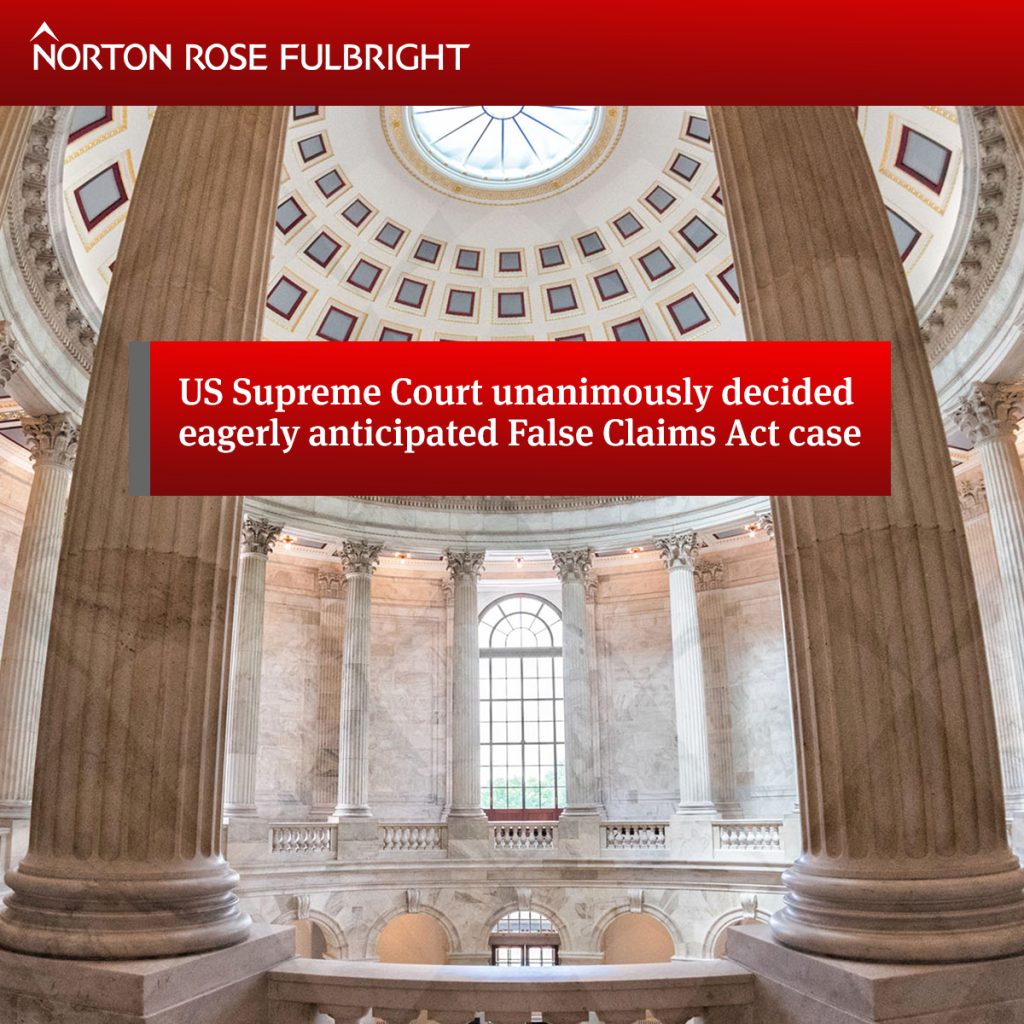Listen to the article
Supreme Court Narrows False Claims Act Defense Strategy in Unanimous Ruling
The U.S. Supreme Court has delivered a significant ruling on the False Claims Act (FCA), addressing a critical question about when companies can be held liable for submitting false claims to the government. In a unanimous decision issued June 1, 2023, the Court rejected the notion that companies can escape liability by presenting “objectively reasonable” post-submission explanations for their conduct.
The cases in question—US ex rel. Proctor v. Safeway Inc. and US ex rel. Schutte et al. v. SuperValu Inc. et al.—involved allegations that the companies charged the government higher “usual and customary” prices for prescription drugs while offering lower prices to many customers through price-match discounts.
Justice Clarence Thomas, writing for the Court, delivered a straightforward answer: “What matters for an FCA case is whether the defendant knew the claim was false.” The ruling emphasizes that a defendant’s contemporaneous understanding or belief about the lawfulness of its conduct at the time of submission is what determines liability—not explanations developed afterward.
The Court’s decision hinged on the FCA’s definition of “knowingly,” which includes actual knowledge, deliberate ignorance, or recklessness. These mental states, the Court noted, “focus primarily on what respondents thought and believed” when submitting claims, making subjective intent highly relevant to determining liability.
According to the ruling, scienter—the legal term for knowledge of wrongdoing—can be established under the FCA if defendants actually knew their claims were false, deliberately avoided learning whether their reports were accurate despite being aware of substantial risk, or were aware of such risk but submitted claims anyway.
The Court drew a parallel to a driver who sees a sign that says “Drive Only Reasonable Speeds,” is told by a police officer that speeds over 50 mph are unreasonable, and notices all other cars traveling at 48 mph. If caught driving 80 mph, that driver “would be hard pressed to argue that some other person might have understood the sign to allow driving at 80 mph.”
In the cases at hand, the Court noted evidence suggesting the companies may have known their practices were problematic, including emails between SuperValu executives referring to a “stealthy approach” and expressing concerns about program integrity.
Industry observers had anticipated dire consequences regardless of the outcome. Whistleblower advocates feared a ruling favoring the companies would enable defendants to evade liability by having lawyers craft post-hoc justifications. Defense attorneys warned that ruling against the companies would trigger a flood of FCA litigation.
Neither doomsday scenario materialized in what Justice Kavanaugh had described during oral arguments as potentially a “narrow loss” for the business community. The Court focused tightly on the timing of a defendant’s knowledge rather than creating sweeping new standards.
For government contractors and healthcare providers, the ruling underscores the importance of contemporaneous compliance assessments. Companies can still defend themselves by showing they honestly believed their claims were not false when submitted, but after-the-fact legal interpretations will carry little weight.
What the Court did not address may prove equally significant. The justices offered minimal guidance on how to navigate ambiguous government regulations—a common challenge for contractors. Companies often struggle to obtain clear guidance from government agencies on compliance questions, leaving them to make judgment calls about regulatory interpretations.
The ruling serves as a warning to those who fail to perform sufficient due diligence or who ignore potential compliance issues when confronted with ambiguous statutory or regulatory language. Lower courts will now need to evaluate evidence of subjective intent at the time claims are submitted, likely on a case-by-case basis.
For companies doing business with the government, the message is clear: claims submitted with knowledge of their falsity remain actionable under the FCA, regardless of whether a reasonable interpretation might later justify them.
Verify This Yourself
Use these professional tools to fact-check and investigate claims independently
Reverse Image Search
Check if this image has been used elsewhere or in different contexts
Ask Our AI About This Claim
Get instant answers with web-powered AI analysis
Related Fact-Checks
See what other fact-checkers have said about similar claims
Want More Verification Tools?
Access our full suite of professional disinformation monitoring and investigation tools



